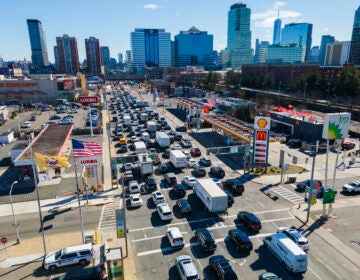Cape May preparing legal strategy to leave regional school district

Voters in the three South Jersey towns that comprise the Lower Cape May Regional School District have to decide Tuesday whether Cape May is allowed to leave the regional district the city has shared with Lower Township and West Cape May since the 1960s.
If voters allow the split, Cape May will save around $5.2 million in property taxes annually. Lower Township and West Cape May’s property taxes, however, will rise by approximately $4.7 million and $692,000, respectively.
Cape May Deputy Mayor Jack Wichterman says the town’s taxes are too high for the scant 67 students it sends to the district’s high school. By comparison, Lower Township sends 1,346 students. West Cape May, meanwhile, is caught in the middle; it only send 42 students, but would still see an increase in their property taxes.
Opponents say that Cape May’s exit would be a financial blow to the district.
“If they withdraw, and [they] take millions of dollars from the stream to these schools, you will damage the school,” said Mayor Mike Beck of Lower Township.
Cape May is not expected to get its way in tomorrow’s elections. Last month voters from the three towns defeated a ballot question that Cape May wanted approved. It asked voters to change funding for the high school based on the number of students each town had enrolled instead of on property tax values, which are generally higher in Cape May. (K-7 education is handled by each individual town).
“We know we’re not going to win, let’s not kid anybody,” said Wichterman at a November 21 round table discussion of the vote. “We have 1,800 full-time voters in the city of Cape May and there are over 12,000 in Lower Township. So, just put the numbers together.”
Plan B
The next step, according to Wichterman and lawyer Vito Gagliardi, is a lawsuit on constitutional grounds.
When Lower Cape May Regional formed in the 1960s, regional school districts were funded on a per-pupil calculation. Then, in 1975, the New Jersey legislature passed a law that switched regional school district funding to a formula based on property taxes in the towns involved in an effort to encourage more regional school districts to form.
In 1993, the legislature reversed its decision, and regional school districts were free to revert back to their old per-pupil funding formula if voters in the towns involved agreed. Lower Cape May Regional never took a vote, despite Cape May’s request to do so, Gagliardi and Wichterman said.
The legislature in 1975, Gagliardi said, violated voters’ rights by passing a law that overrode what the towns originally voted for (per pupil funding). Then, in 1993, a vote wasn’t held to revert back to that formula. Thus, the voters’ constitutional right to decide their school’s funding was further violated, he said.
“This isn’t about what you think is fair or I think is fair,” Gagliardi said, “but to go back to what voters voted for.”
The special election will be held Tuesday, December 9th, from 2-9 p.m.
WHYY is your source for fact-based, in-depth journalism and information. As a nonprofit organization, we rely on financial support from readers like you. Please give today.




